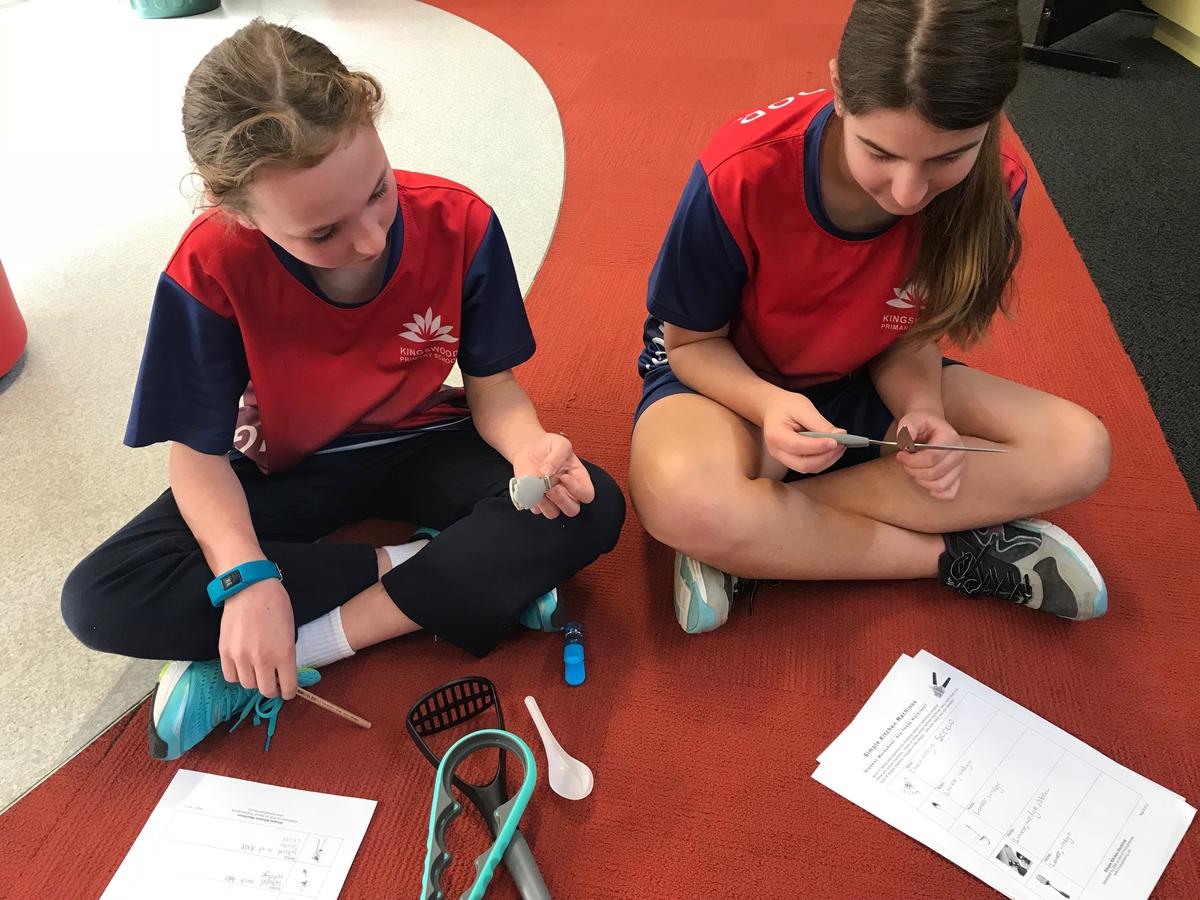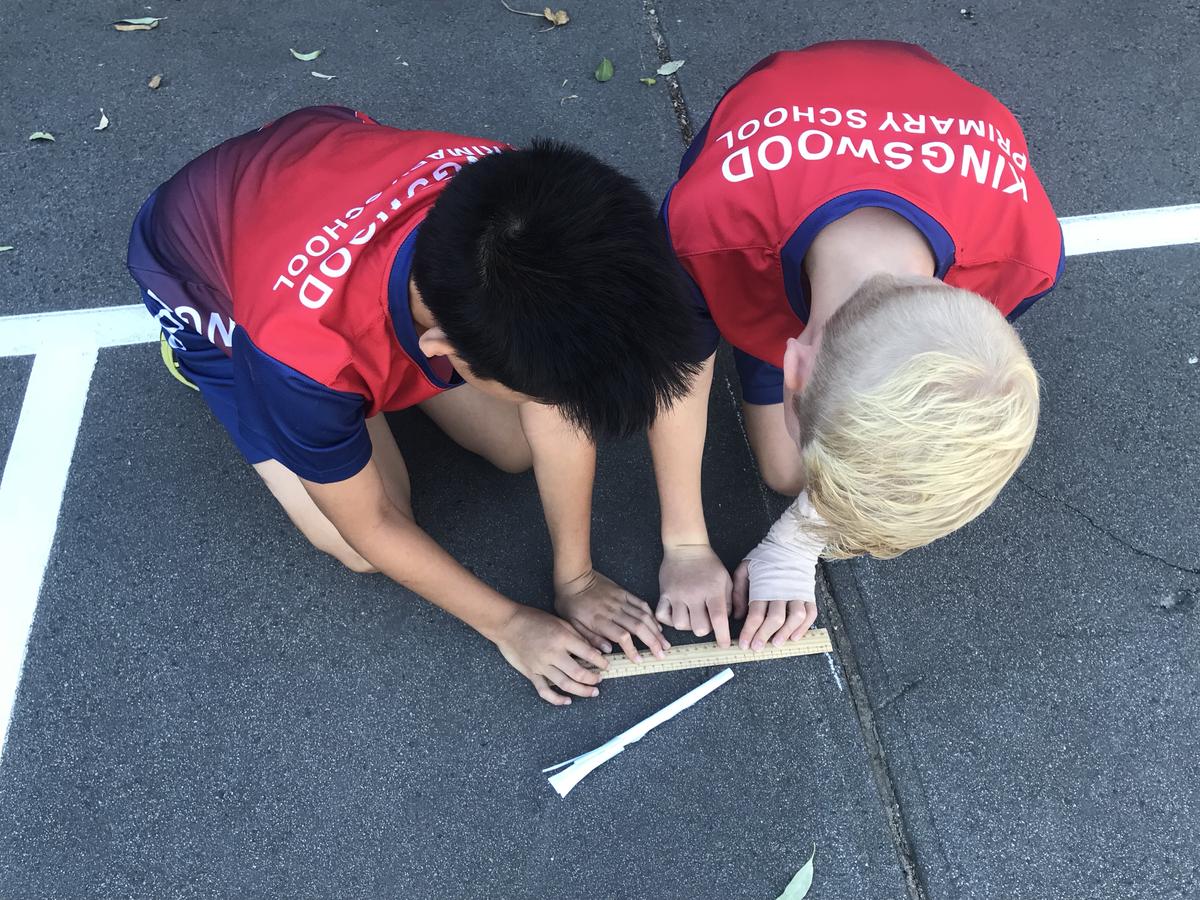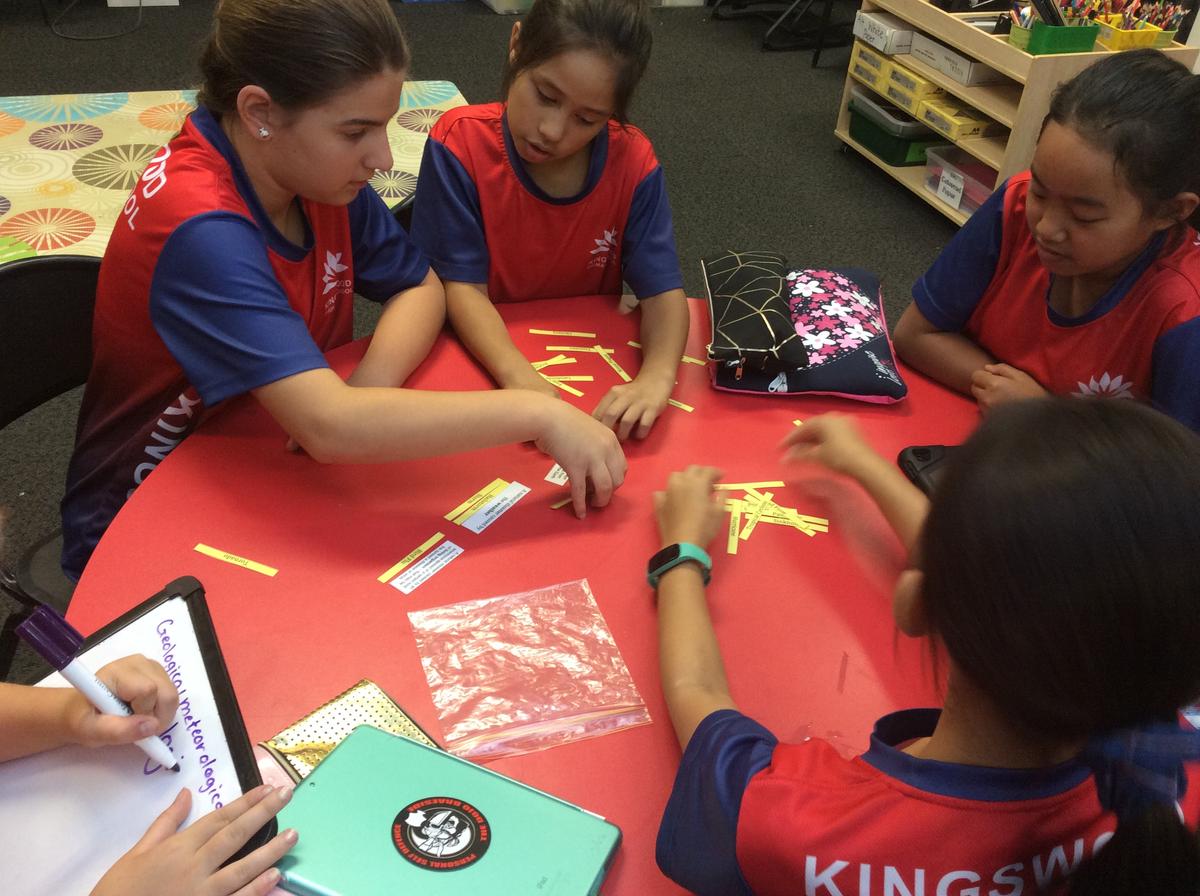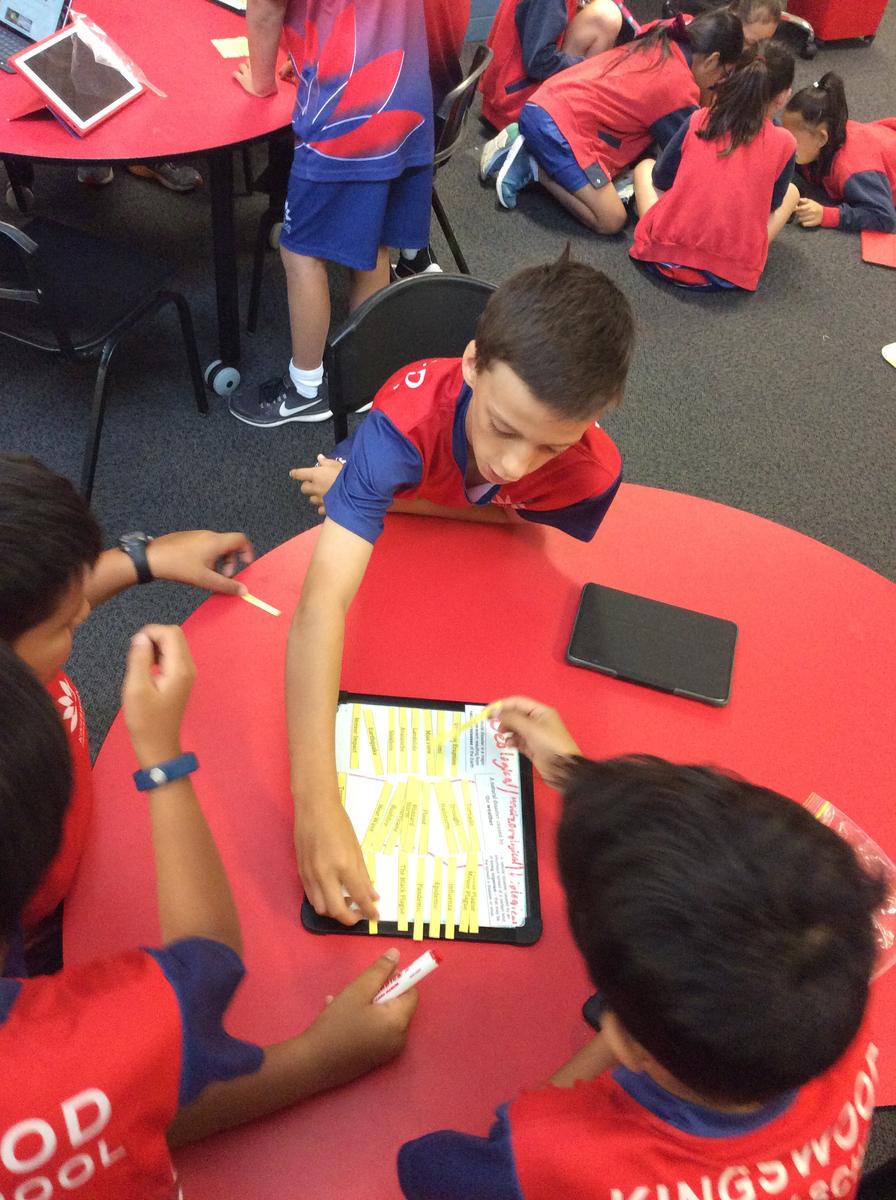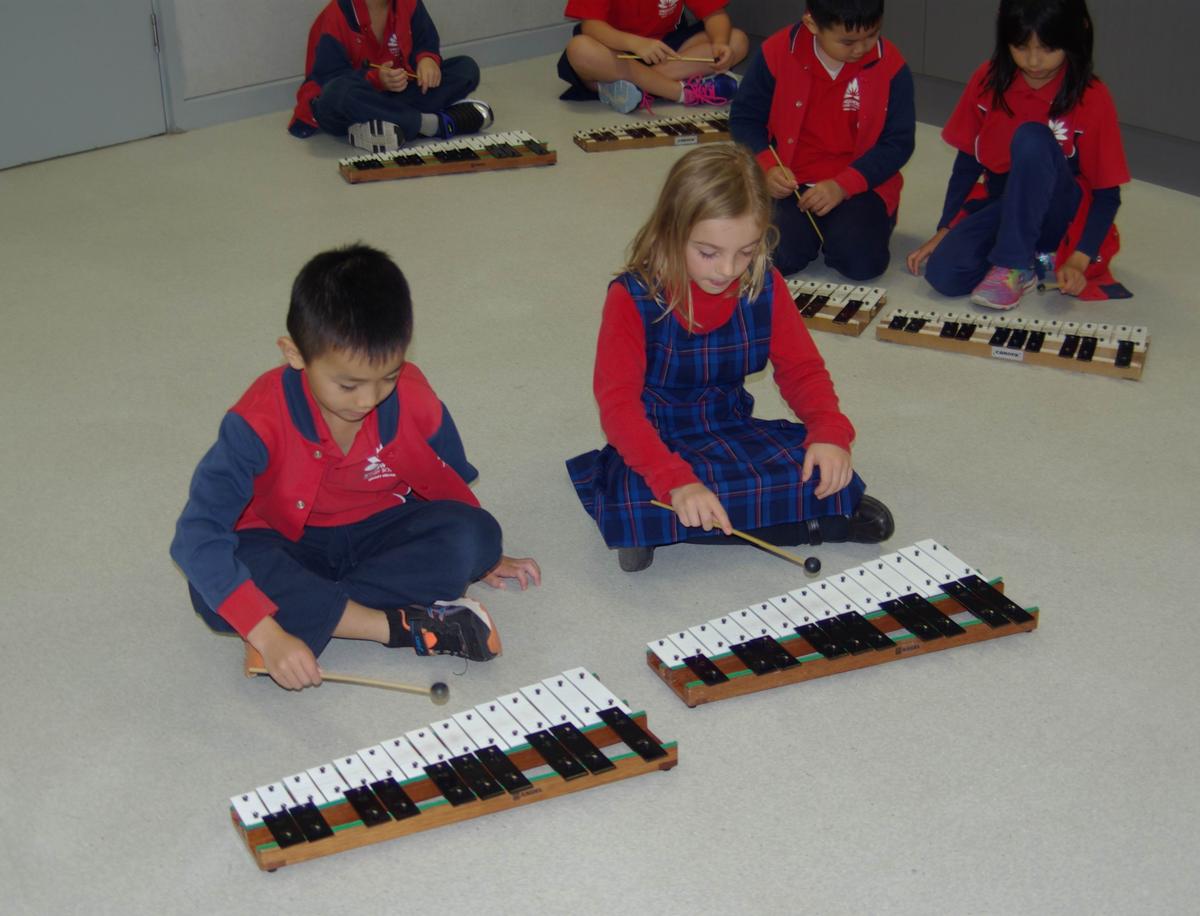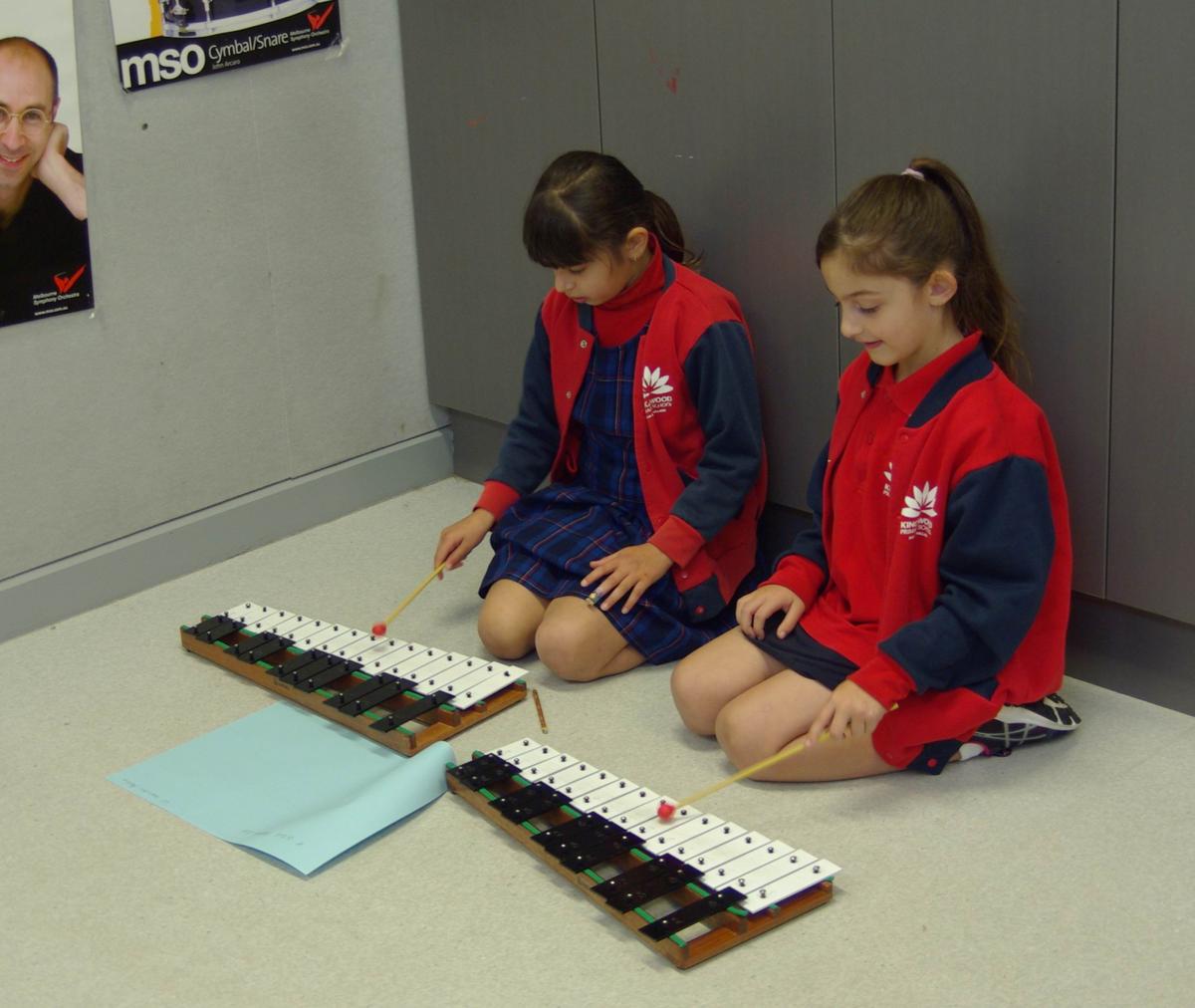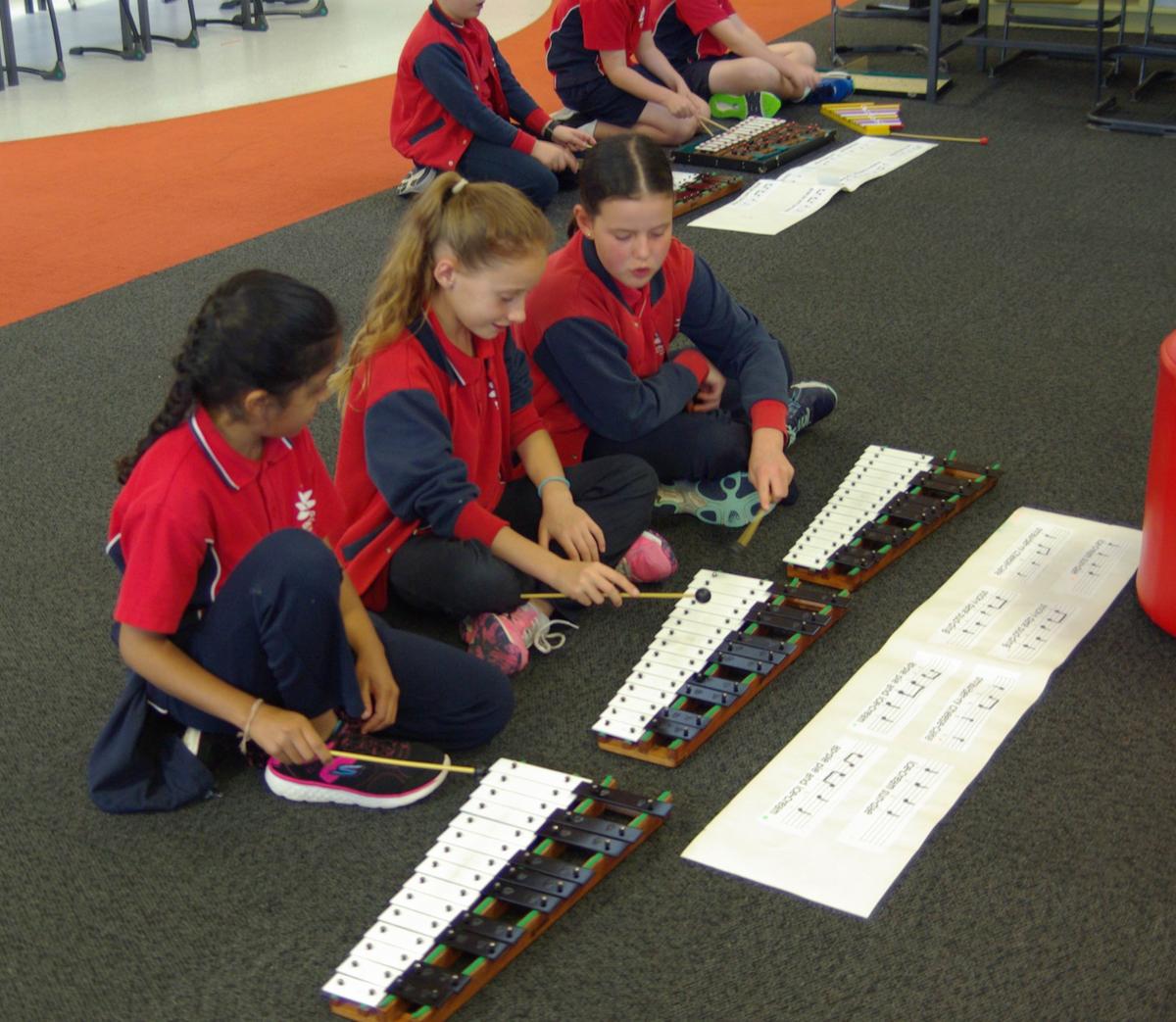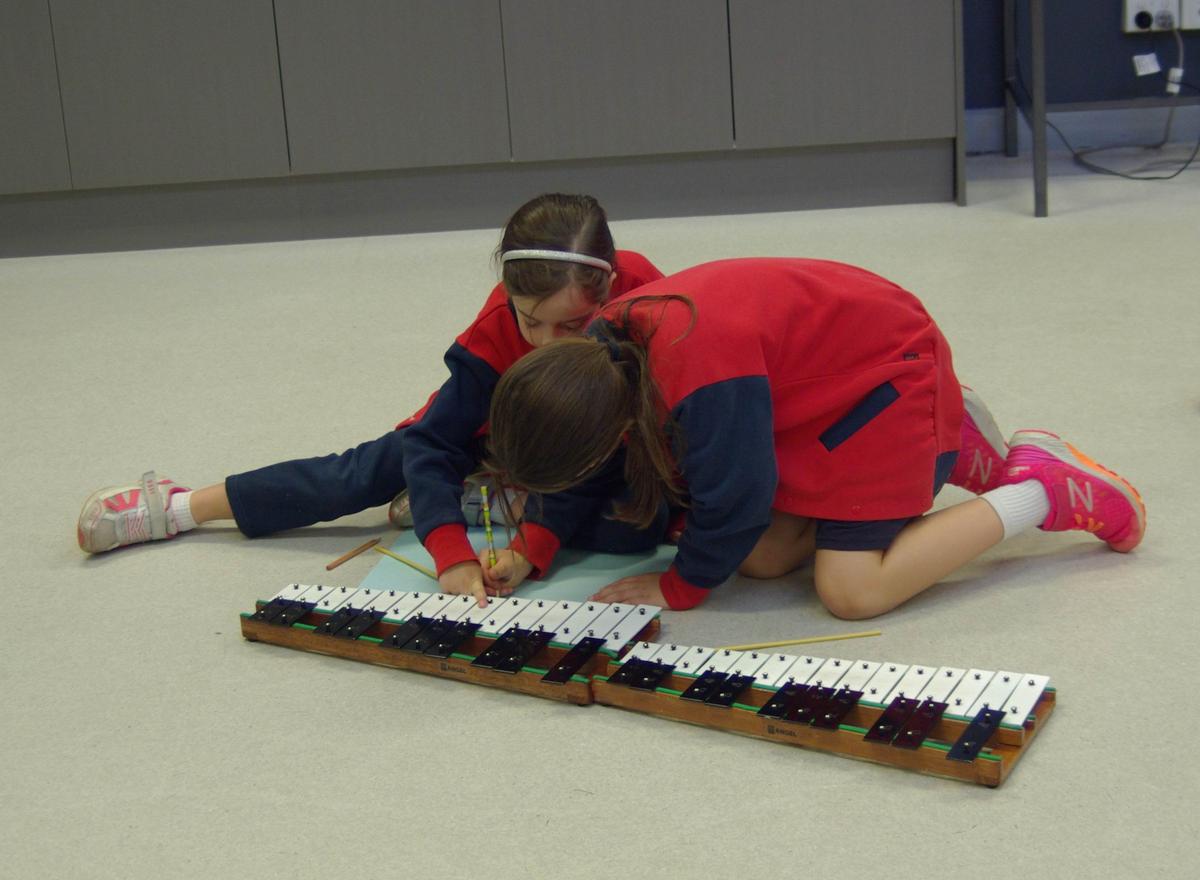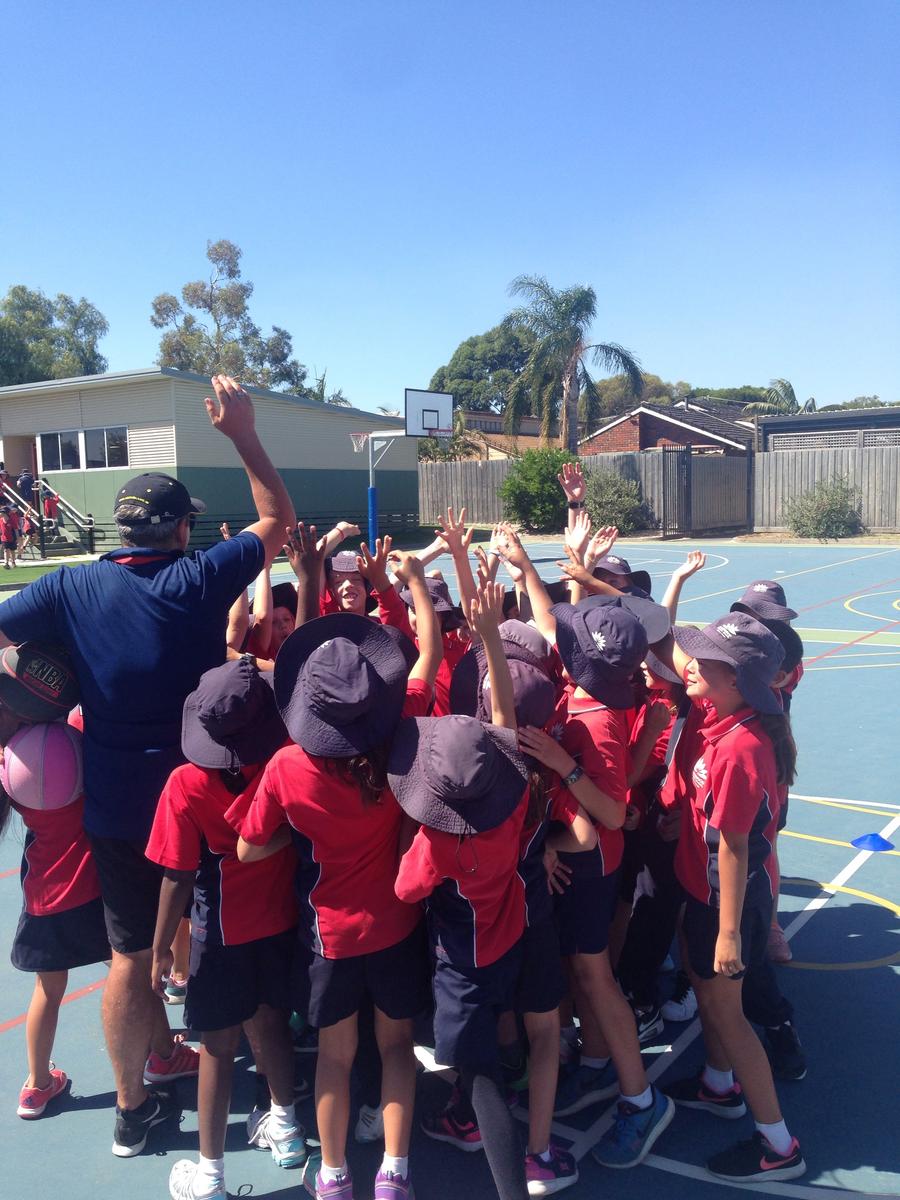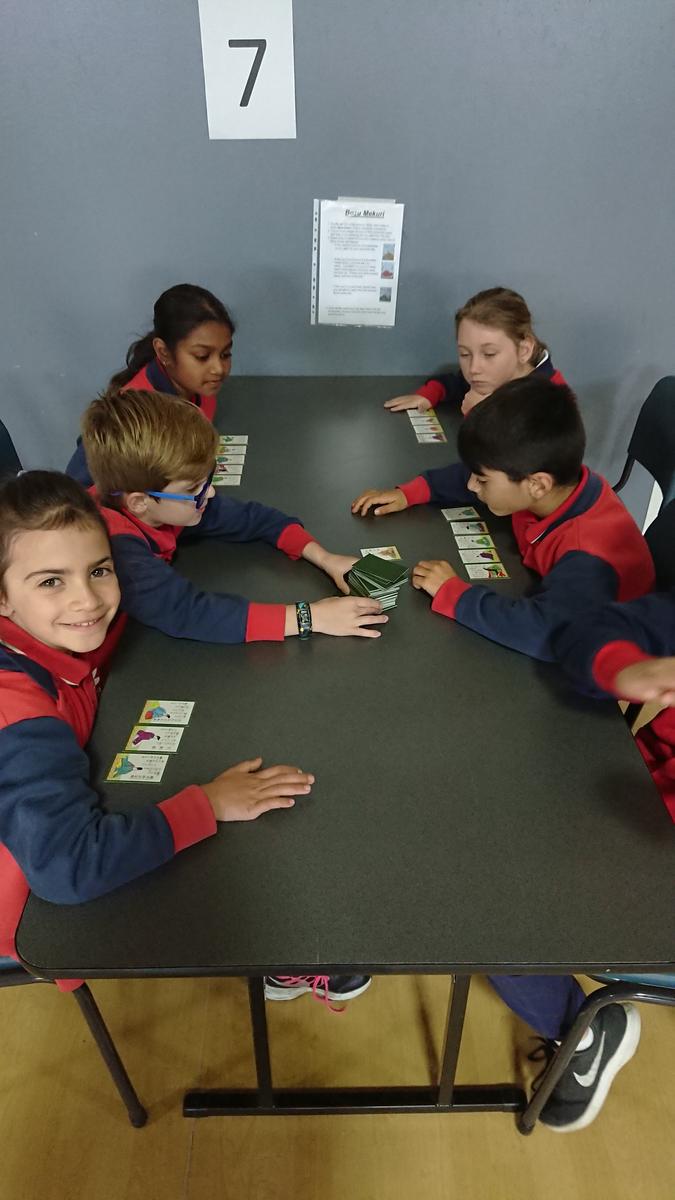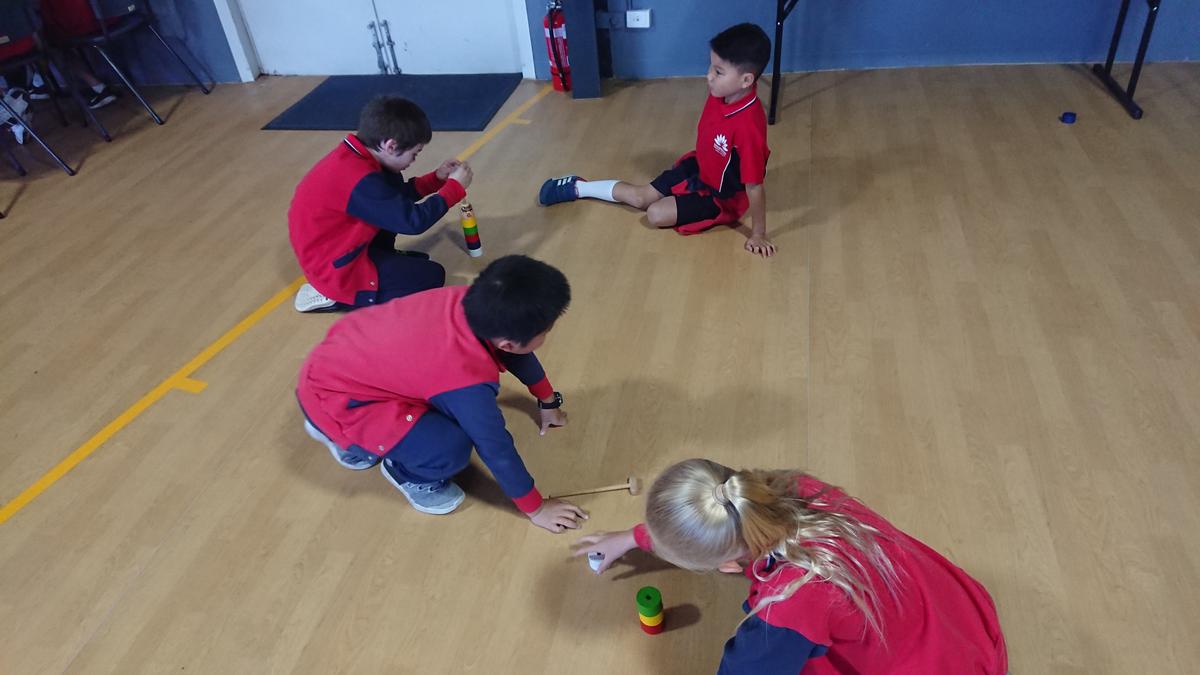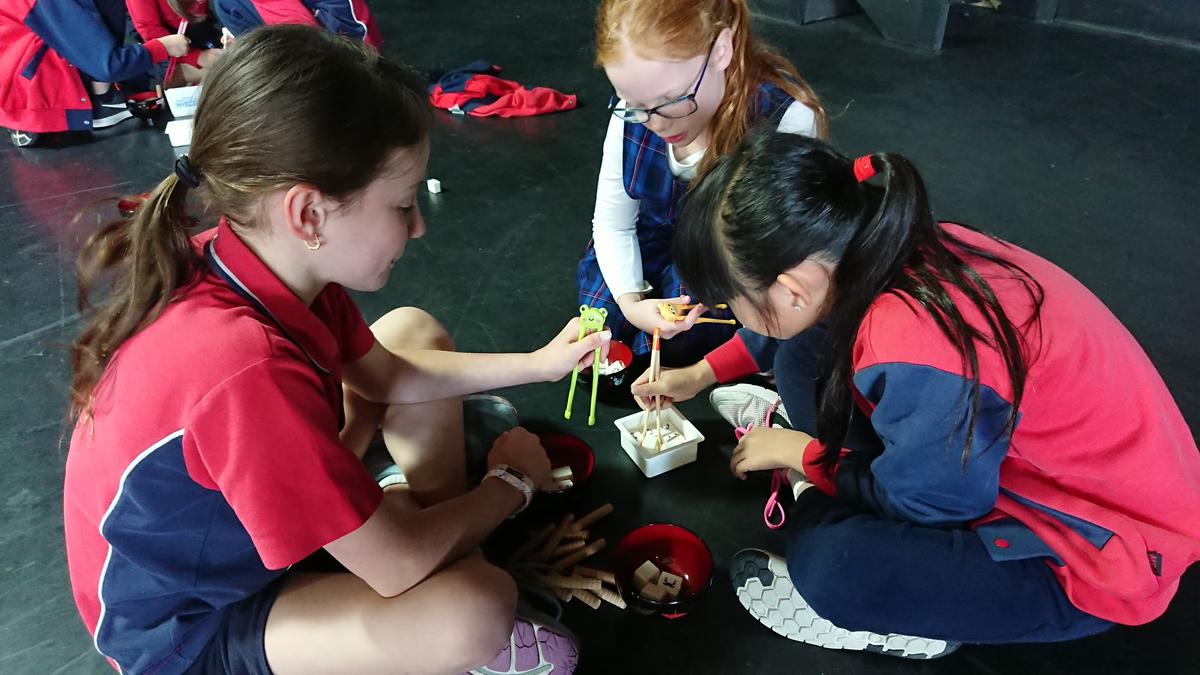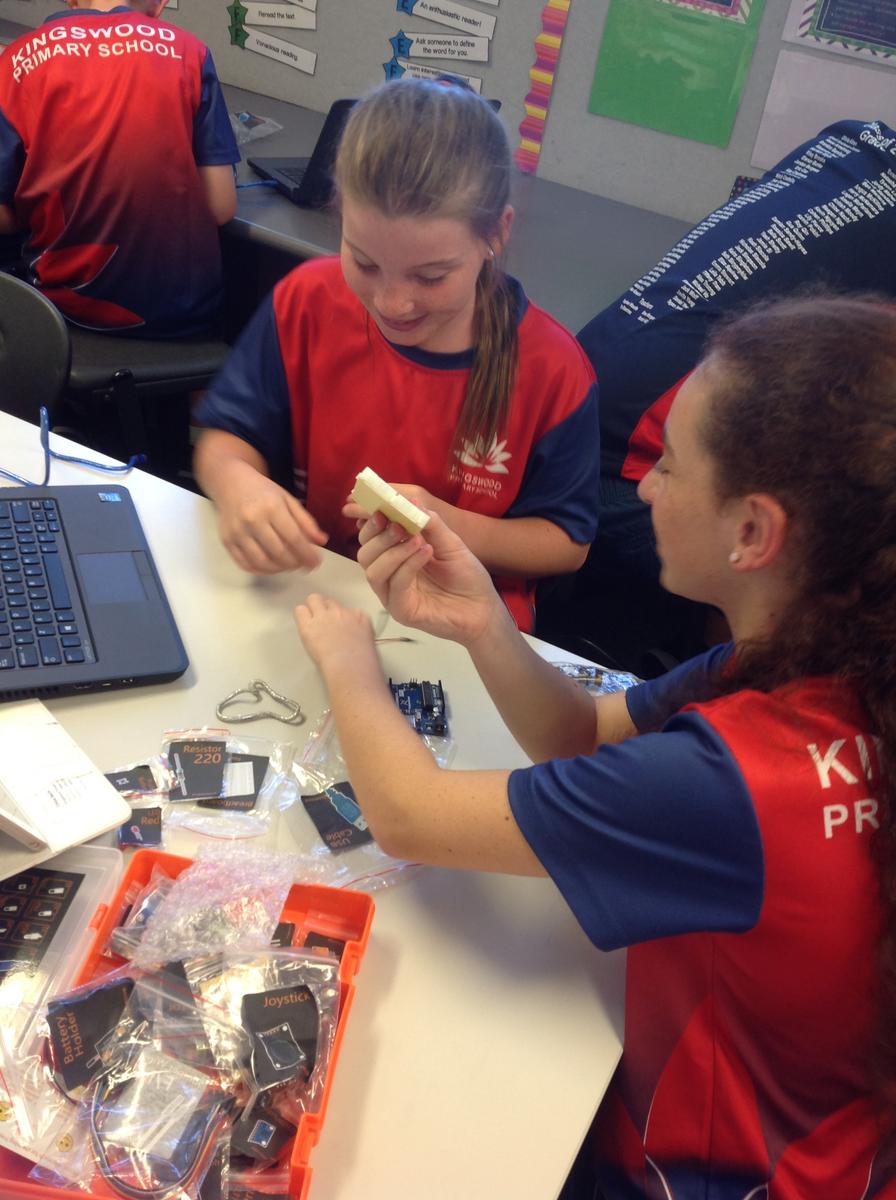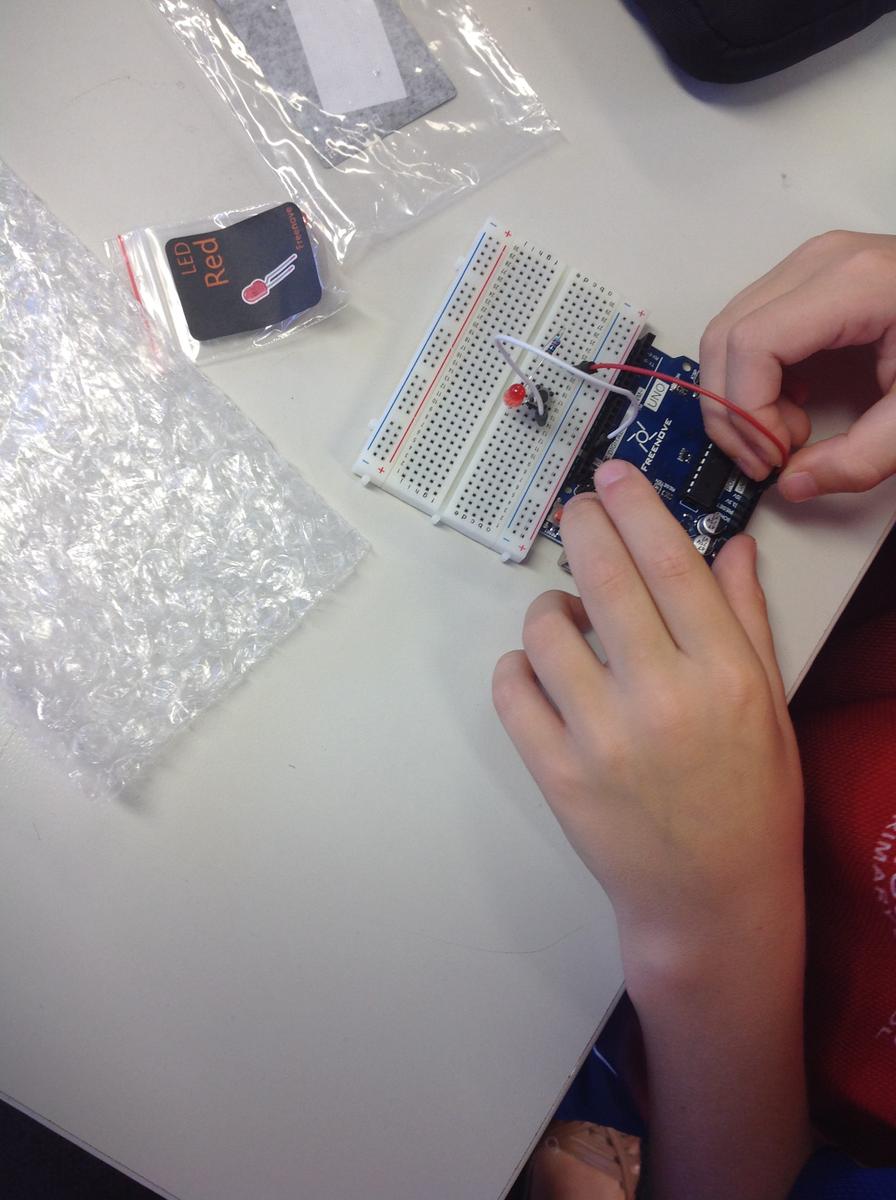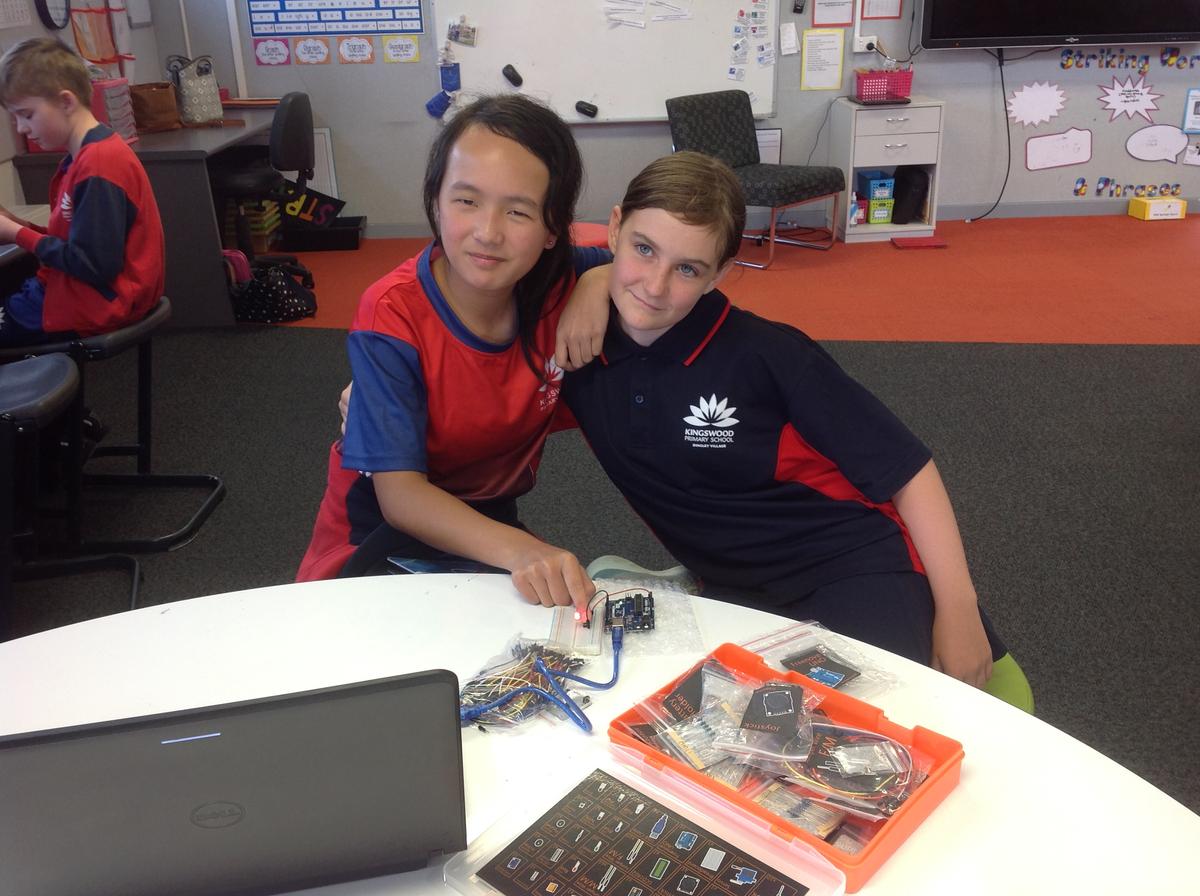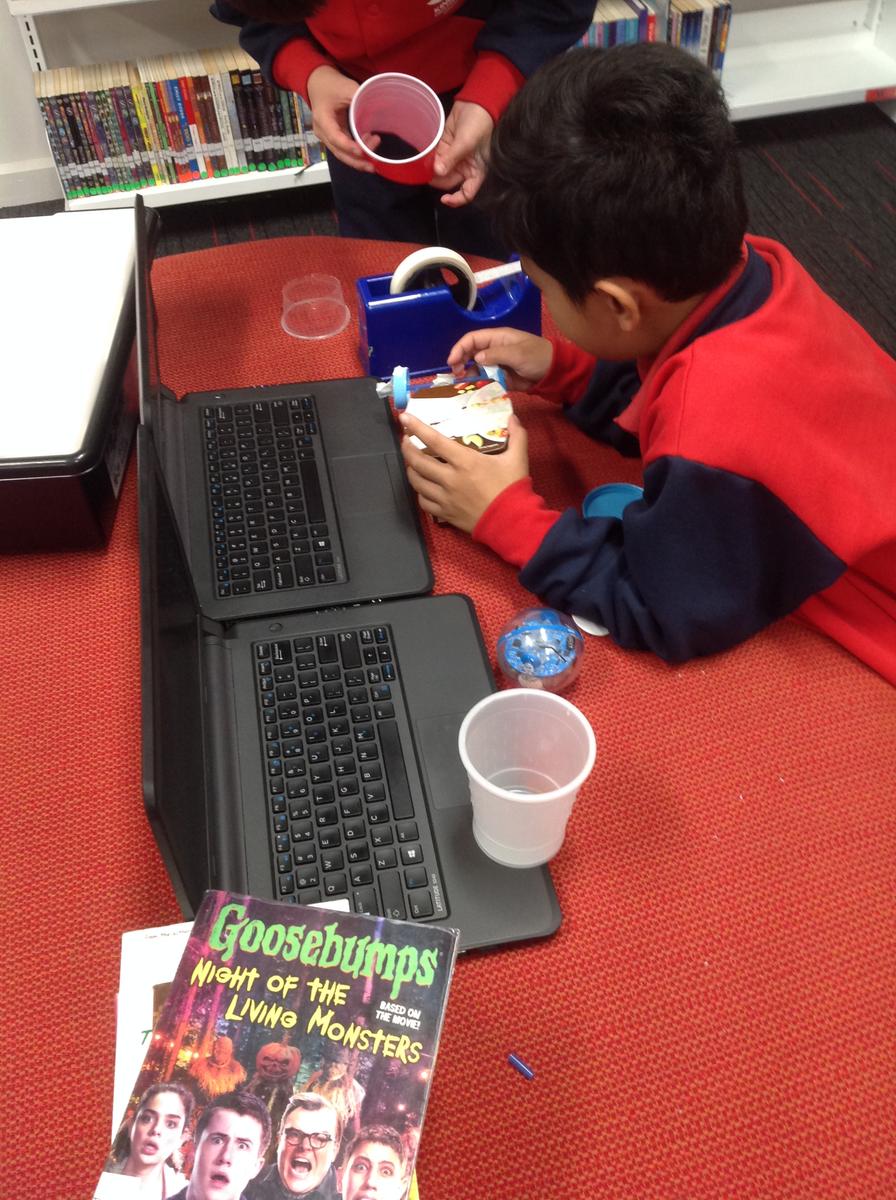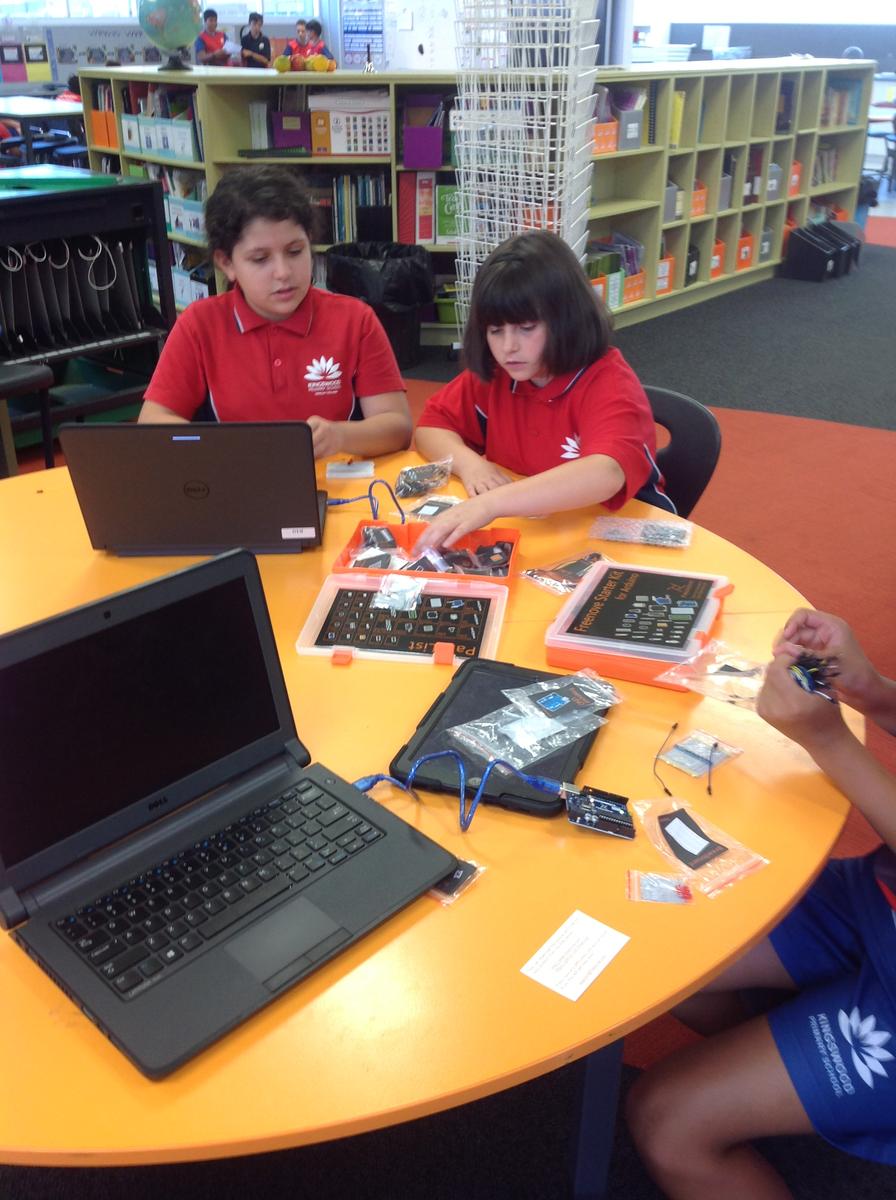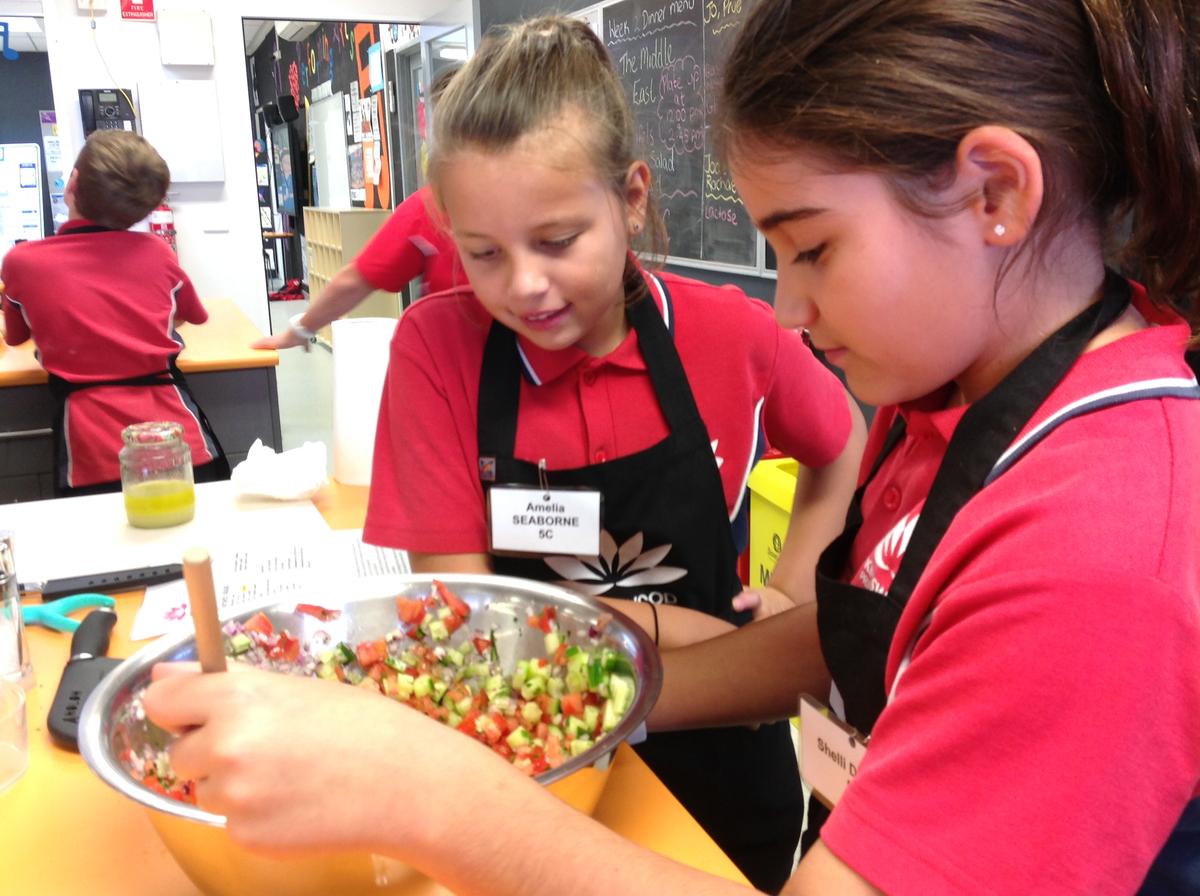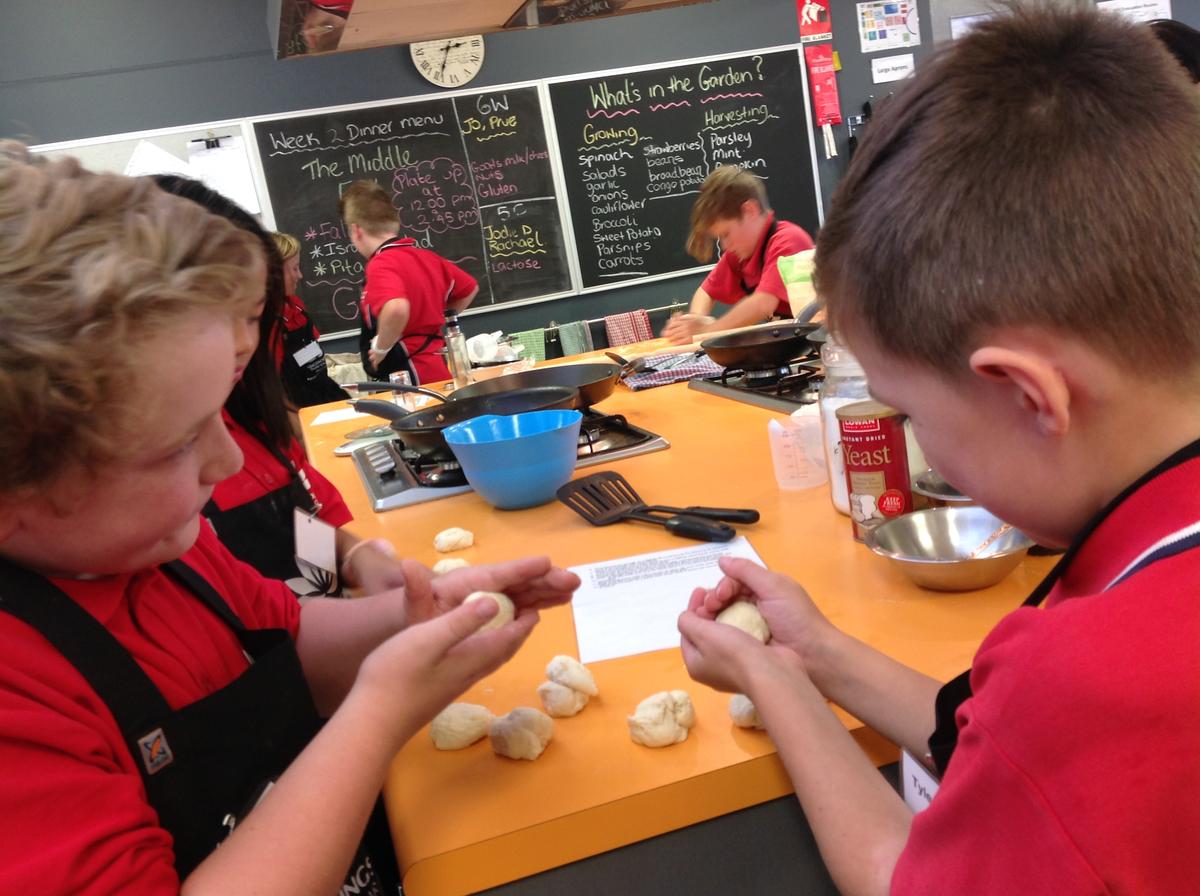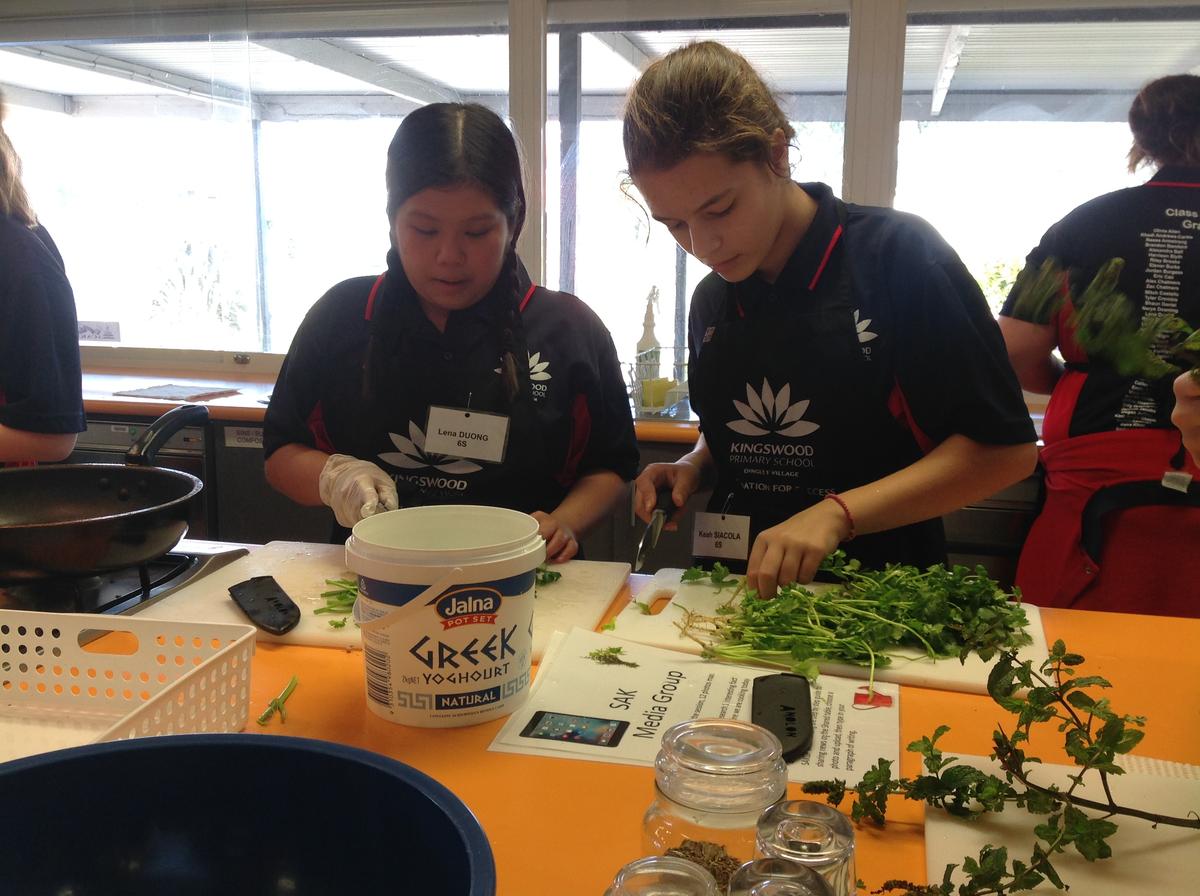Spotlight on HOM
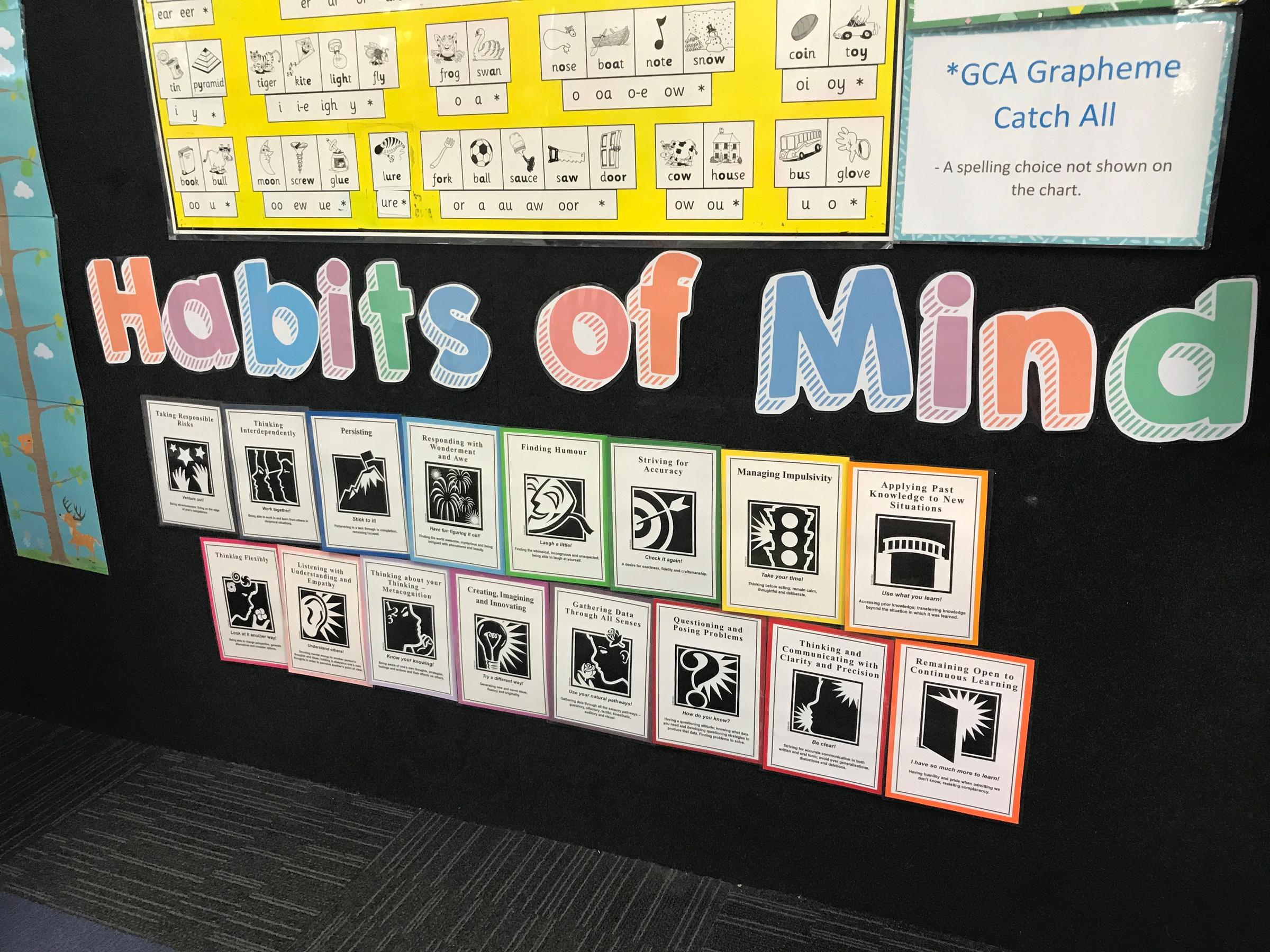
Thinking Interdependently in Specialist Classes
The wonderful thing about Specialist lessons is that they regularly enable our students to use and practice the Habit of Mind of Thinking Interdependently.
In Engineering, students worked collaboratively discovering and discussing how simple machines help us in the home everyday to do work. They worked interdependently to gather data for analysing the best space rocket designs that use aerodynamics, air resistance and momentum to go the longest distance.
In Science, students work together and think interdependently in a variety of ways. Year 5 students collaborated to classify natural disasters. Year 6 students engineered ‘earthquake proof structures’. They also attempted to make a cyclone in a bottle.
In Performing Arts, students in Years 2 and 4 created their own original music compositions using glockenspiels. They had to share and record their ideas, rehearse together and practise playing in synchronisation.
In Physical Education, team activities lend themselves to providing opportunities for students to hone their skills in thinking interdependently and strategically. At the District Softball Day, both teams came in first place, working interdependently throughout! During the basketball clinic, students worked in teams during game activities.
Year 3 and 4 Students in Japanese are using traditional equipment to create their own games, modifying existing rules.
Coding and Robotics is another Specialist area where students think interdependently. This Semester some projects the students have been working on together are Arduinos and Spheros. Students in 5/6 have created flashing lights like a police car, using an Arduino, breadboard and jumper wires. Students in 3/4 have been working in small groups to create a Sphero ‘chariot’. From design, creation and programming the students have been collaborating in small groups.
The Stephanie Alexander Kitchen Classroom is one of the best examples of entire classes thinking and working interdependently. If the students didn’t use this skill effectively, they wouldn’t have their delicious meals ready in time to eat by the end of the lesson. Doing the dishes and tidying up at the end of the session also calls for interdependent thinking!

